


![]() JOIN THE CONVERSATION: #WOMEN4GROWTH
JOIN THE CONVERSATION: #WOMEN4GROWTH
This panel discussion covers how increasing female participation in the labor force can support countries’ growth, development, and stability objectives, including on policies geared toward helping women cope with new technologies. The panel will draw on IMF’s new research on gender diversity and resilience and will discuss the future of work. The panel will focus on which policy designs are most successful at increasing women’s empowerment and how these policies could support countries’ growth, development, and stability objectives; including by discussing policies needed to help women cope with technological change.
Moderator: Rosianna Silalahi, Editor-in-Chief, Kompas TV
Panelists:
Christine Lagarde, Managing Director, IMF
Sri Mulyani Indrawati, Minister of Finance, Indonesia
Priyanthi Fernando, Executive Director, International Women’s Rights Action Watch, Asia Pacific
Vera Songwe, Executive Secretary, United Nations Economic Commission for Africa (UNECA)
Carolyn Wilkins, Senior Deputy Governor, Bank of Canada
Women have a tremendous potential to transform our economies and societies. However, digitalization is changing the way work gets done with a potential large negative effect on women. A panel of policymakers and women’s rights advocates discussed female participation in the labor force, impact of new technologies on women, and the importance of removing gender-related barriers.
Key Points:
Higher female labor force participation (FLFP) leads to large economic gains. Panelists generally agreed that while gender diversity is conducive to productivity growth, much remains to be done to narrow the participation gap. Lagarde cited one recent Fund Staff Discussion Note (SDN) that shows male and female employees are complementary in production, as women bring something different to the workplace. Songwe noted that improvement of infrastructure such as better access to electricity is essential.
Female workers are more vulnerable to advances in digital technologies. Panelists believed that women are more likely to be adversely affected by automation. Lagarde cited the findings in another Fund SDN that a larger proportion of the female workforce is at high risk for automation than males, 11 percent versus 9 percent, with 26 million female jobs potentially at stake in 30 countries (28 OECD member countries, Cyprus, and Singapore). However, she added that the rise of the service sector can contribute to reducing the gender employment gap. Indrawati noted that while the new technologies can provide women with the flexibility to work at home, what we really hope to achieve is an increase in high-paying jobs for women.
Gender-related barriers. Despite the headway made so far, panelists believed that many social barriers and cultural stereotypes still need to be removed. Borrowing the title of a biography about former U.S. Secretary of State Condoleezza Rice, Indrawati argued that women often need to be “twice as good” as men and work much more diligently to achieve career success. She noted that some stereotypes are prevalent and deep-seated, as many deem positions like finance minister as “a male job.” Fernando noted that some men think housewives are not working.
Role models are powerful for the young. Panelists emphasized that role models have the ability to transform a generation. Lagarde said we need to celebrate woman winners. Indrawati noted that we should ensure that girls have the right role models and mentors to lead the way. Songwe noted that we must make woman champions more visible across the world.
Quotes:
“Invest in women education.” Christine Lagarde
“Men own about 80 percent of land in Africa, while over 70 percent of rural women work on the land.” Vera Songwe
“The more we have women in leadership, the more young women will say I want to be like that too.” Carolyn Wilkins
Contributor: Danny Xufeng Jiang
 |
| Rosianna Silalahi |
| Editor-in-Chief, Kompas TV |
Rosianna Silalahi is a television journalist and host for a prime time talkshow. She interviewed world leader from US President Jimmy Carter, President George Bush, Iranian President Ahmadinejad, Mahatir Muhammad, Lee Kuan Yew, and Chile President, Michelle Bachellet.
She was also awarded for the best TV News Presenter for 4 consecutive years. She is now Kompastv News Director and hosts a prime time talkhsow "Rosi."
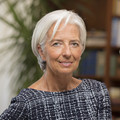 |
| Christine Lagarde |
| Managing Director, IMF |
Chistine Lagarge is a French lawyer and politician who has been the Managing Director (MD) of the International Monetary Fund (IMF) since 5 July 2011. Previously, she held various, senior ministerial posts in the French government: she was Minister of Economic Affairs, Finance and Employment, Minister of Agriculture and Fishing and Minister of Trade in the government of Dominique de Villepin. An anti-trust and labour lawyer, Lagarde was the first female chair of major international law firm Baker & McKenzie, between 1999 and 2004.
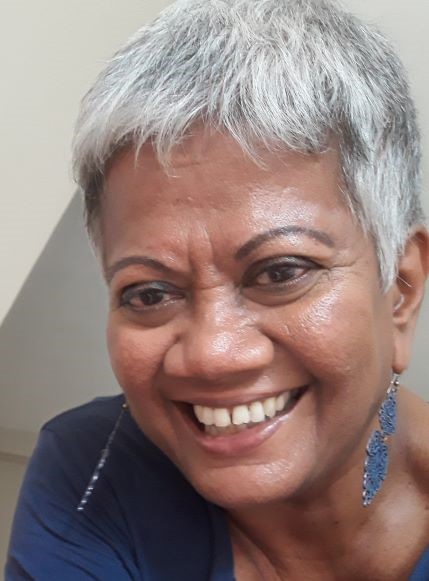 |
| Priyanthi Fernando |
| Executive Director, International Women’s Rights Action Watch, Asia Pacific |
Priyanthi Fernando is the Executive Director of the International Women’s Rights Action Watch, Asia Pacific. An advocate for women’s rights, and a social development and communications professional with over 30 years of experience, Priyanthi has worked in the areas of technology, infrastructure and poverty in a range of countries and has led several international organisations. She holds a Masters Degree in Mass Communications from the University of Leicester and a Bachelors Degree in Sociology from the University of Peradeniya, Sri Lanka.
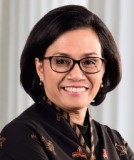 |
| Sri Mulyani Indrawati |
| Minister of Finance, Indonesia |
Sri Mulyani Indrawati is Indonesia’s Finance Minister since 2016. In 2002, she was the Executive Director representing 12 countries in the South East Asia (SEA Group) at the IMF. From 2005-2010, In 2005, she served as Finance Minister. In June 2010 she was appointed as Executive Director of the World Bank Group. She earned her BA in economics from the Universitas Indonesia in 1986 and her PhD in Economics in 1992.
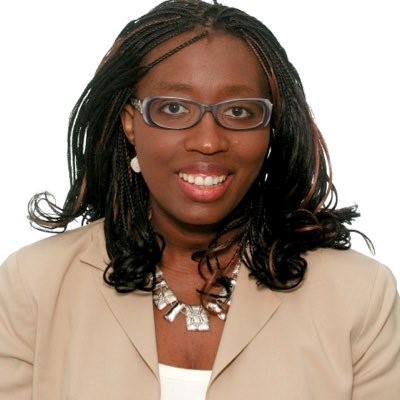 |
| Vera Songwe |
| Executive Secretary, United Nations Economic Commission for Africa (UNECA) |
Vera Songwe is the Executive Secretary of the United Nations Economic Commission for Africa. She was currently Regional Director Africa covering West and Central Africa for the International Finance Corporation and non-resident Senior Fellow at The Brookings Institute. Before that, she held a number of positions at the World Bank including Country Director, Adviser and Lead Country Sector Coordinator and Senior Economist. She holds a Ph.D. in Mathematical Economics and a MA in Law and Economics from the Université Catholique de Louvain, and a BA in Economics and Political Science from the University of Michigan.
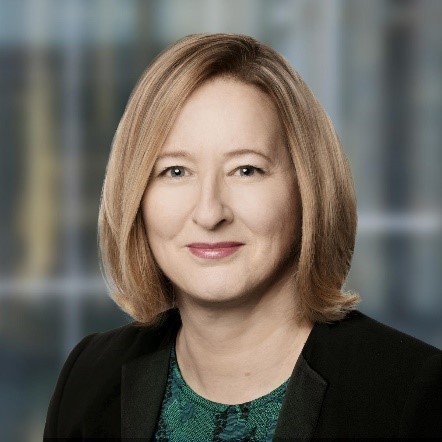 |
| Carolyn Wilkins |
| Senior Deputy Governor, Bank of Canada |
Carolyn Wilkins was appointed as the Bank of Canada’s Senior Deputy Governor in 2014, for a seven-year term.
As Senior Deputy Governor, Ms. Wilkins oversees the strategic planning and economic and financial research of the Bank. She also shares responsibility for the conduct of monetary policy with the other members of Governing Council, and she is a member of the Bank’s Board of Directors.
Ms. Wilkins represents the Bank on the Financial Stability Board (FSB), and is a member of the FSB’s Standing Committee on Assessment of Vulnerabilities. She is a member of the IMF’s high-level advisory group on Fintech, and chaired the FSB’s FinTech Issues Group.